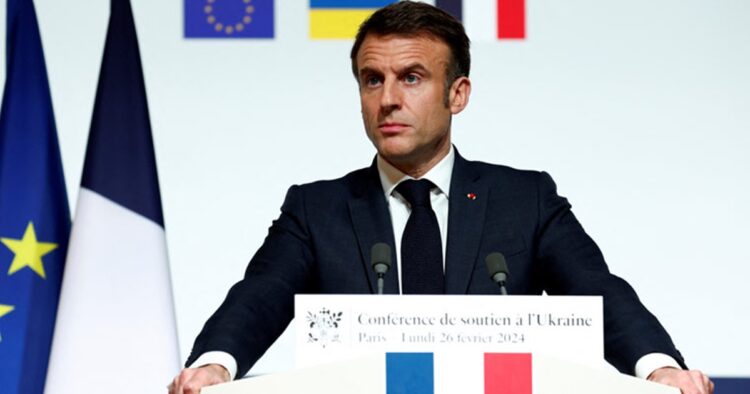French President Emmanuel Macron embarked on a journey to New Caledonia aiming to quell the riots that have recently shaken the French archipelago.
Situated in the southwestern Pacific Ocean, New Caledonia, located about 16,000 kilometers away from mainland France, has been grappling with civil unrest, raising concerns about Macron’s approach to France’s colonial past.
Tensions between the Indigenous Kanak people, advocating for independence, and descendants of colonizers, who wish to maintain ties with France, have persisted for decades.
The recent turmoil erupted amid debates in the French legislature about potential changes to New Caledonia’s voter lists, sparking fears among opponents that it could further marginalize the Kanak community.
Scheduled to arrive on Thursday morning, Macron’s visit aims to restore order, foster dialogue among local leaders, and address the extensive damage caused by the violence, estimated to be in the hundreds of millions of Euros.
The Elysee Palace stated that Macron intends to express solidarity with the territory’s residents, commend security forces for their efforts, and engage in discussions concerning both reconstruction efforts and underlying political issues.
READ MORE: “Macron’s Surprise Visit to New Caledonia Amid Deadly Unrest and Indigenous Frustration”
Macron has been actively involved in New Caledonia’s political landscape, particularly in facilitating dialogue between pro-independence and pro-France factions. Notably, his efforts led to a 2018 referendum in which New Caledonians narrowly voted to remain part of France.
Responding to the unrest, significant reinforcements from the gendarmerie, police, and civil security, totaling 1,050 personnel, have been deployed. Authorities have dismantled over 90 roadblocks and arrested more than 280 individuals involved in rioting.
Six fatalities, including two gendarmes, have occurred during the violence, while 84 law enforcement officers have sustained injuries.
As Macron arrives in New Caledonia, his visit underscores the urgency of addressing the complex socio-political dynamics in the territory and the need for constructive dialogue to achieve lasting stability and reconciliation among its diverse communities.

















Comments